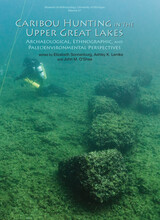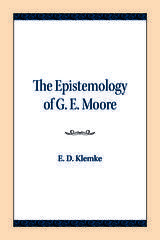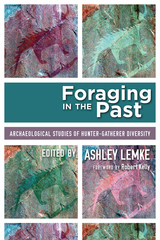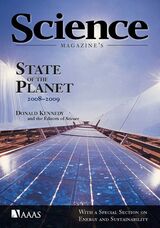5 books by Lemke

Caribou Hunting in the Upper Great Lakes
Edited by Elizabeth Sonnenburg, Ashley K. Lemke and John M. O'Shea
University of Michigan Press, 2015
Bringing together American and Canadian scholars of Great Lakes prehistory to provide a holistic picture of caribou hunters, this volume covers such diverse topics as paleoenvironmental reconstruction, ethnographic surveys of hunting features with Native informants in Canada, and underwater archaeological research, and presents a synthetic model of ancient caribou hunters in the Great Lakes region.
[more]

The Crisis of Socialism in Europe
Christiane Lemke and Gary Marks, eds.
Duke University Press, 1991
The revolutions in Eastern Europe and the recasting of socialism in Western Europe since 1989 have given rise to intense debate over the origins, character, and implications of the “crisis” of socialism. Is socialism in ideological, electoral, or organizational decline? Is the decline inevitable or can socialism be revitalized? This volume draws together historians and political scientists of Eastern and Western European politics to address these questions.
The collection begins with an historical overview of socialism in Western Europe and moves toward the suggestion of a framework for a post-socialist discourse. Among the topics covered are: the birth and death of communism and a regime type in Eastern Europe; how different forms of national communism were smothered by Sovietization in the postwar period; the origins of revolutions in Eastern Europe; the potential for social democracy in Hungary; the role of the Left in a reunified German; and directions for the Left in general.
The collection begins with an historical overview of socialism in Western Europe and moves toward the suggestion of a framework for a post-socialist discourse. Among the topics covered are: the birth and death of communism and a regime type in Eastern Europe; how different forms of national communism were smothered by Sovietization in the postwar period; the origins of revolutions in Eastern Europe; the potential for social democracy in Hungary; the role of the Left in a reunified German; and directions for the Left in general.
Contributors. Geoff Eley, Konrad Jarausch, Herbert Kitschelt, Christiane Lemke, Andrei Markovits, Gary Marks, Wolfgang Merkel, Norman Naimark, Iván and Szonja Szelénya, Sharon Wolchik
[more]

The Epistemology of G. E. Moore
E. D. Klemke
Northwestern University Press, 1969
The Epistemology of G. E. Moore is an examination of the philosophy of G. E. Moore, one of the foremost Anglo-American, analytic philosophers of the twentieth century.This book, together with Reinhardt Grossmann’s Reflections on Frege’s Philosophy and Moltke Gram’s Kant, Ontology, and the A Priori, seeks to redress an imbalance in analytic philosophy by making a case for the relevance of analytically oriented historical studies to contemporary problems. It focuses on Moore’s epistemological writings and aims to present an exhaustive overview of Moore’s work on this topic.
[more]

Foraging in the Past
Archaeological Studies of Hunter-Gatherer Diversity
Lemke
University Press of Colorado, 2018
The label “hunter-gatherer” covers an extremely diverse range of societies and behaviors, yet most of what is known is provided by ethnographic and historical data that cannot be used to interpret prehistory. Foraging in the Past takes an explicitly archaeological approach to the potential of the archaeological record to document the variability and time depth of hunter-gatherers.
Well-established and young scholars present new prehistoric data and describe new methods and theories to investigate ancient forager lifeways and document hunter-gatherer variability across the globe. The authors use relationships established by cross-cultural data as a background for examining the empirical patterns of prehistory. Covering underwater sites in North America, the peaks of the Andes, Asian rainforests, and beyond, chapters are data rich, methodologically sound, and theoretically nuanced, effectively exploring the latest evidence for behavioral diversity in the fundamental process of hunting and gathering.
Foraging in the Past establishes how hunter-gatherers can be considered archaeologically, extending beyond the reach of ethnographers and historians to argue that only through archaeological research can the full range of hunter-gatherer variability be documented. Presenting a comprehensive and integrated approach to forager diversity in the past, the volume will be of significance to both students and scholars working with or teaching about hunter-gatherers.
Contributors: Nicholas J. Conard, Raven Garvey, Keiko Kitagawa, John Krigbaum, Petra Krönneck, Steven Kuhn, Julia Lee-Thorp, Peter Mitchell, Katherine Moore, Susanne C. Münzel, Kurt Rademaker, Patrick Roberts, Britt Starkovich, Brian A. Stewart, Mary Stiner
Well-established and young scholars present new prehistoric data and describe new methods and theories to investigate ancient forager lifeways and document hunter-gatherer variability across the globe. The authors use relationships established by cross-cultural data as a background for examining the empirical patterns of prehistory. Covering underwater sites in North America, the peaks of the Andes, Asian rainforests, and beyond, chapters are data rich, methodologically sound, and theoretically nuanced, effectively exploring the latest evidence for behavioral diversity in the fundamental process of hunting and gathering.
Foraging in the Past establishes how hunter-gatherers can be considered archaeologically, extending beyond the reach of ethnographers and historians to argue that only through archaeological research can the full range of hunter-gatherer variability be documented. Presenting a comprehensive and integrated approach to forager diversity in the past, the volume will be of significance to both students and scholars working with or teaching about hunter-gatherers.
Contributors: Nicholas J. Conard, Raven Garvey, Keiko Kitagawa, John Krigbaum, Petra Krönneck, Steven Kuhn, Julia Lee-Thorp, Peter Mitchell, Katherine Moore, Susanne C. Münzel, Kurt Rademaker, Patrick Roberts, Britt Starkovich, Brian A. Stewart, Mary Stiner
[more]

Science Magazine's State of the Planet 2008-2009
with a Special Section on Energy and Sustainability
Edited by Donald Kennedy and the Editors of Science
Island Press, 2009
Taken from the pages of Science and supplemented by contributions from the magazine’s editors, State of the Planet 2008-2009 offers contemporary science writing that is sometimes provocative, frequently enlightening, and always authoritative. Published by the American Association for the Advancement of Science (AAAS), Science is one of the most respected scientific magazines in the world. With a readership of more than one million people, it offers “hard science” from top scientists to both educated lay readers and scientists alike. The articles collected here are arranged thematically and each section is introduced by a prominent scientist or science writer. Donald Kennedy, who was Editor-in-Chief of Science when these articles appeared in the magazine, contributes a preface and several short essays. Focusing on issues of energy and sustainability, sections of the volume are devoted to the prospects of energy-sparing technologies and alternatives to fossil fuel use, including ethanol and cellulosic digestion. Other sections center on climate change, led by a comprehensive essay on the state of scientific knowledge today and followed by contributions about the Antarctic and Greenland ice sheets, as well as the effects of climate change that have been measured to date, including changes in migration and breeding cycles of birds and flowering in plants, changing patterns of hurricanes and extreme weather events, and alterations in forest fire frequency. Interspersed throughout the book are Science news pieces that highlight particular issues and cases relevant to the main scientific findings. A glossary of key terms and concepts helps students and nonspecialists better understand the terminology and the issues.
[more]
READERS
Browse our collection.
PUBLISHERS
See BiblioVault's publisher services.
STUDENT SERVICES
Files for college accessibility offices.
UChicago Accessibility Resources
home | accessibility | search | about | contact us
BiblioVault ® 2001 - 2024
The University of Chicago Press









